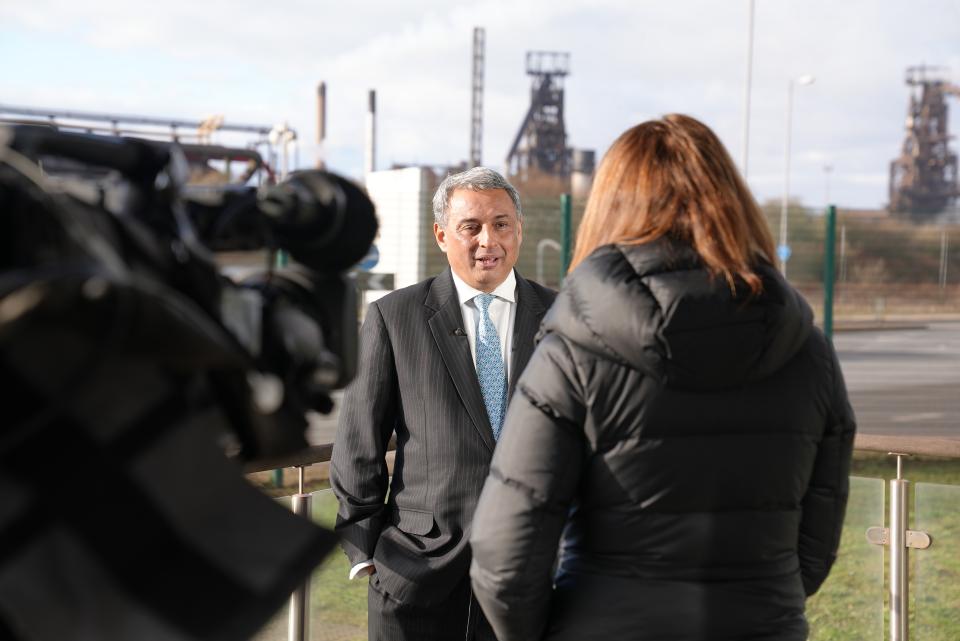India–US Trade Tensions Rise Over Steel and Auto Tariffs NMDC Limited reports a 38% drop in Q4 FY24 consolidated net profit RINL to Raise $23 Million Through Land Sales Amid Crisis

According to TV Narendran, chief executive officer, Tata Steel's decision to close its blast furnaces in the UK and switch to electric arc furnaces aligns with the nation's net-zero objectives. The remarks follow the company's January 19 announcement to gradually close the two blast furnaces at Port Talbot Steelworks in Wales, which sparked accusations of "hypocrisy" against the company. The decision may impact up to 2,800 employees.
The company is accused of hypocrisy as it is opening a new blast furnace plant in India while it has decided to close two blast furnaces in the UK, citing a cut in carbon emissions.
"I think let’s understand the context in different geographies. At a broad level, Europe has a carbon tax. Europe has committed to net zero by 2050, including Europe, the continent, and the UK. The policies have been brought in.
“There is a carbon border adjustment mechanism. So, there is a roadmap and a target that the governments have set on how much carbon they want to reduce by 2030," Narendran said.
British newspaper The Guardian reported that the steel giant had been accused of “gross hypocrisy” as it was preparing to open a new blast furnace in India, citing a cut in carbon emissions to close furnaces in Wales, costing thousands of jobs.
The UK business was not sustainable amid a subdued demand environment, Narendran said. The company sought to leverage the UK's abundance of scrap steel to produce steel.
"India has set net zero by 2070. We don't have a carbon tax in India. So, the regulatory framework in India is different. India is a growing market, so you need to build more capacity," Narendran said, stressing the need to scale up capacity to gain market share in India.
The comments come as a phased commissioning of the 5 MTPA expansion at Kalinganagar has commenced, which Tata Steel cites as the "largest blast furnace in India at 5,870 cubic metres".
"It's a very different context in India and the UK, and we have never said anywhere that we’ll stop building blast furnaces," Narendran added.
The company swung back into the black in the December quarter. It reported a consolidated net profit of Rs 522.14 crore against a net loss of Rs 2,501.95 crore in the same quarter of the previous year, helped by robust domestic demand offsetting weakness in Europe, the company said on January 24.
Also Read : JSW Steel Faces ₹6,155 Cr Claim from BPSL Lenders Over Delayed Resolution Plan Tata Steel CEO Backs Anti-Dumping Duty on Steel Imports